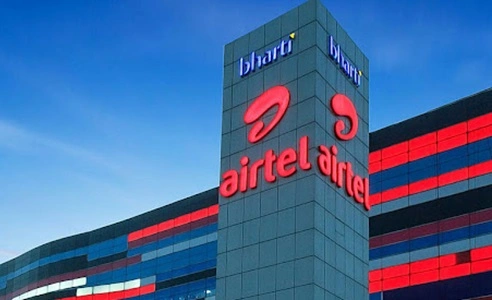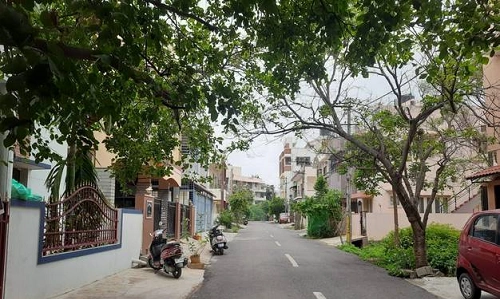Bharti Airtel remains a dominant player in India’s telecom industry, driven by strong financial performance, strategic partnerships, and digital expansion. In Q3 FY25, Airtel reported a net profit of ₹14,781 crore, fueled by tariff hikes and a one-time gain of ₹7,546 crore. Its Average Revenue Per User (ARPU) has consistently improved, reflecting a shift towards high-value customers.
Airtel has deepened its 5G expansion through a multi-billion-dollar agreement with Ericsson, enhancing network coverage and data speeds across India. The company is also strengthening its financial and digital ecosystem through a strategic partnership with Bajaj Finance, aiming to provide digital financial services at scale.
Additionally, Airtel Payments Bank, cloud services, and enterprise solutions are witnessing rapid growth, diversifying its revenue streams. With a strong focus on innovation, customer experience, and digital transformation, Airtel is poised for long-term growth in India’s evolving telecom and tech landscape.
A comprehensive SWOT analysis—assessing Strengths, Weaknesses, Opportunities, and Threats—provides insight into Airtel’s current position and future prospects.
Strengths
- Robust Financial Performance: In the fiscal year 2023-24, Bharti Airtel achieved a consolidated revenue of ₹1,499,824 million, marking a 7.79% year-over-year growth. The company also reported a net income of ₹85,580 million, reflecting a 10.53% decrease from the previous year.
- Extensive Network Infrastructure: Airtel has invested over $50 billion in building a digital infrastructure that empowers individuals and businesses with secure and reliable digital solutions. This extensive network covers more than 2 billion people globally.
- Diverse Service Portfolio: Beyond traditional telecom services, Airtel has expanded into digital services, including Airtel Payments Bank, Wynk Music, and Airtel Xstream, catering to a wide range of customer needs and enhancing revenue streams.
- Strategic Global Investments: In August 2024, Bharti Airtel’s founder, Sunil Bharti Mittal, acquired a 24.5% stake in British telecom group BT for approximately $4 billion, marking a significant international expansion and showcasing confidence in global market opportunities.

Weaknesses
- Regulatory Challenges: In September 2024, India’s Supreme Court dismissed petitions from telecom companies, including Bharti Airtel, seeking a revision of the amounts owed to the government in license fees. This decision underscores the ongoing regulatory challenges faced by the company.
- Debt Obligations: Airtel has made significant prepayments towards its spectrum liabilities, including ₹36.26 billion in December 2024, to clear dues from the 2016 spectrum auction. While these prepayments reduce future financial burdens, they also reflect the company’s substantial debt obligations.
- Customer Service Concerns: Despite technological advancements, Airtel has faced criticism regarding customer service quality, which can impact customer satisfaction and loyalty.
Opportunities
- 5G Expansion: The Indian 5G service market is projected to generate $10 billion in revenue by 2025. Airtel’s focus on enhancing its 5G infrastructure positions the company to capitalize on this growing market.
- Digital Payments Growth: With the digital payments market in India projected to grow to $1 trillion by 2025, Airtel Payments Bank is well-positioned to leverage this trend, offering comprehensive financial services to a broad customer base.
- Rural Market Penetration: Expanding services in rural areas presents a significant growth opportunity, allowing Airtel to tap into an underserved market and contribute to bridging the digital divide.
Threats
- Intensifying Competition: The Indian telecom sector is highly competitive, with major players like Reliance Jio and Vodafone Idea continually striving to increase their market share, leading to potential pricing pressures and reduced margins.
- Regulatory and Policy Risks: Changes in government policies, such as spectrum pricing and licensing regulations, can impact operational costs and strategic planning. The dismissal of petitions regarding license fee calculations highlights the regulatory risks in the sector.
- Technological Disruptions: Rapid technological advancements require continuous investment in infrastructure and services. Failure to adapt swiftly can result in obsolescence and loss of competitive edge.
Conclusion
In 2025, Bharti Airtel continues to demonstrate resilience and strategic foresight in navigating the dynamic telecommunications landscape. By leveraging its robust financial performance, extensive network infrastructure, and diverse service portfolio, the company is well-positioned to seize emerging opportunities in 5G expansion and digital payments. However, addressing challenges related to regulatory compliance, debt obligations, and customer service quality will be crucial in sustaining its competitive advantage and fostering long-term growth.
Anantha Nageswaran is the chief editor and writer at TheBusinessBlaze.com. He specialises in business, finance, insurance, loan investment topics. With a strong background in business-finance and a passion for demystifying complex concepts, Anantha brings a unique perspective to his writing.


